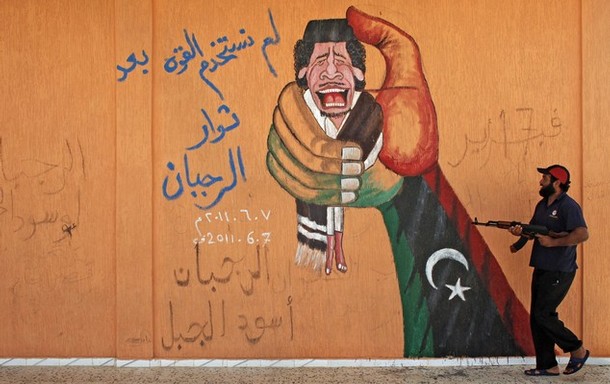
From Jim Hoagland, the Washington Post: Grinding civil war in Libya, a state-organized bloodbath in Syria and troubling stumbles in Egypt’s march to democracy dim the luster of Arab revolts that began the year in glory. This Arab summer is a political season of reaction and reversal. . . .
The governments that make up the Arab League earned the world’s respect in March by condemning Gaddafi’s threats to slaughter Libyan civilians wholesale. They have brought shame on themselves by watching Assad’s savage campaign to exterminate his political opponents in Syria in silence until Sunday. Even then, they stopped short of clearly condemning Assad in a statement that expressed concern and distress over Syria’s violence. The March resolution turns out to have been more personal — aimed at Gaddafi, not bloody repression — than it was principled.
This retreat from international humanitarian standards greatly hampers all other international efforts to pressure Damascus. Moral indignation by outsiders, to say nothing of military action like that undertaken by NATO in Libya, best succeeds when there is local political cover and cooperation. . . .
But the son’s Syria is not the isolated redoubt the father ruled. Hafez systematically razed much of the town of Hama in 1982 before word filtered out to Beirut that an estimated 20,000 people had been massacred there. Today, tanks shelling Hama’s streets — and Syrian troops occupying mosques — are shown on al-Jazeera and other satellite television networks as quickly as cellphone video can be uploaded by a sophisticated network of incredibly brave Syrian dissidents.
Such imagery must over time erode the legitimacy of the Arab (and Iranian) rulers who offer Assad succor. Even these police states are vulnerable to the virus of modern communication. U.S. policy should continue to focus on drawing ever-brighter lines of condemnation around the Syrian ruler and those who support him, including through the imaginative use of economic pressure. . . .
We are at a fitful intermission, not a final curtain, for the new Arab revolutions. We have seen how information technology can provide a spark that sets afire the kindling of economic and social distress. That turns out to have been necessary, but not sufficient, to transform societies long exploited by their rulers. Much more work and understanding by both Arabs and Americans is required.
The writer is a contributing editor to The Post. His e-mail address is jimhoagland@washpost.com. (photo: Reuters)
Image: reuters%208%208%2011%20Gaddafi%20graffiti.jpg
